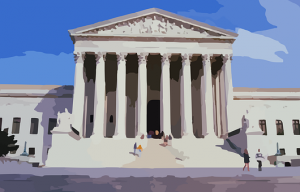Equitable Relief in the Chancery Division of New Jersey’s Superior Court
 The General Equity Part of the Chancery Division of the Superior Court of New Jersey has the ability to grant “equitable” relief in addition to money damages, making it a desirable venue for business dispute.
The General Equity Part of the Chancery Division of the Superior Court of New Jersey has the ability to grant “equitable” relief in addition to money damages, making it a desirable venue for business dispute.
Where a New Jersey lawsuit is heard is determined by New Jersey’s Rules of Court. Civil actions are heard in the various divisions of the Superior Court. Civil cases with disputes of up to $3000 are heard in the Small Claims Division of the Superior Court. Civil cases with disputes of up to $15,000 are heard in the Special Civil Division of the Superior Court. All other cases are heard in either the Law Division or Chancery Division, General Equity Part. The Law Division hears lawsuits which seek primarily “legal” damages – ie., suits which are primarily for money. The General Equity Part of the Chancery Division hears “actions in which the plaintiff’s primary right or the principal relief sought is equitable in nature.” Thus, in order to understand what is heard in the Chancery Division, we need to take a brief trip back to Merry Olde England and talk about the split between courts of “law” and “equity.”
The law courts in England gave “legal” relief, but developed a complex system of writs. If a suit did not fit precisely within the requirements of one of the writs, relief was denied. The office of the chancellor developed even prior to the Norman Conquest in 1066 as the “king’s conscience,” and could grant relief when remedies at law were inadequate. The chancery, or equity, court eventually carved out its own sphere, creating a rigid and artificial barrier between law and equity, creating a situation in which litigants sometimes could not find relief in either. Charles Dickens described the effects well in his classic novel Bleak House:
 New Jersey Lawyers Blog
New Jersey Lawyers Blog


 “Legal” and “Equitable” Remedies in New Jersey Courts
“Legal” and “Equitable” Remedies in New Jersey Courts